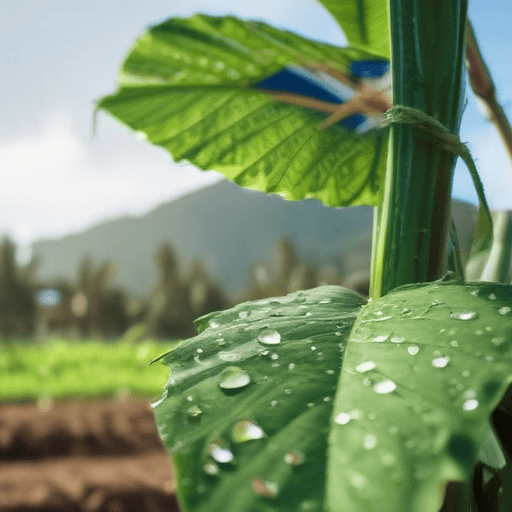Fiji’s agricultural sector is increasingly challenged by severe weather conditions, particularly due to climate change impacts such as rising temperatures and heavy rainfall. As these weather extremes grow, they threaten both the quality and quantity of agricultural output not just in Fiji but across the globe.
In light of these challenges, the Fijian government has recognized the urgent need to bolster agricultural resilience. To this end, it has called upon the Taiwan Technical Mission in Fiji (TTM) for support in developing sustainable farming practices and introducing resilient crop varieties. This partnership dates back to 1978, with TTM having a long history of assisting the Ministry of Agriculture in enhancing local production capabilities.
Dr. Shalendra Prasad from the Ministry of Agriculture noted that TTM has consistently designed new projects every five years to benefit Fijian farmers. The previous project concluded in December 2024, focusing on the introduction of new crops such as guava and dragon fruit, which have gained significant interest among local farmers. The new initiative aims to further adapt to the consequences of climate change by improving production technologies, particularly for key vegetables like cabbage, tomatoes, and cucumbers, ensuring steady, year-round supply.
TTM’s team leader, Jerry Liao, highlighted the urgency behind this initiative, especially as recent surveys have indicated that a large majority of farmers reported experiencing extreme weather, with many attributing significant losses to these conditions. According to projections, Fiji’s rainfall is expected to escalate by 42% between 2022 and 2042, which could result in crop losses totaling more than $96 million.
The project will include establishing two agricultural resilience centers—one in Nausori and a long-term cooperative site in Sigatoka. These centers aim to serve as models for how to cultivate crops sustainably amidst challenging weather patterns, while providing community education on advanced farming techniques.
The focus will expand to include the introduction of twelve resilient varieties of vegetables and fruits—using advanced technologies from Taiwan, including grafting techniques to increase local crop viability. This proactive approach is intended to significantly reduce the dependency on imported vegetables, thus supporting local food security and the economy.
The Agriculture Ministry is committed to training farmers to utilize these new technologies, and it will provide tissue-cultured planting materials to enhance production capabilities. Dr. Prasad expressed gratitude for the ongoing support from the TTM, emphasizing the benefits of this collaboration in confronting the growing threats of climate change.
Overall, these initiatives reflect a concerted effort to not only enhance agricultural output but also ensure that Fijian farmers are well-equipped to tackle the evolving climate challenges, promoting a sustainable and self-sufficient future for the sector. This positive approach aims to create a more resilient agricultural landscape in Fiji, ensuring food security and stability for local communities.

Leave a comment